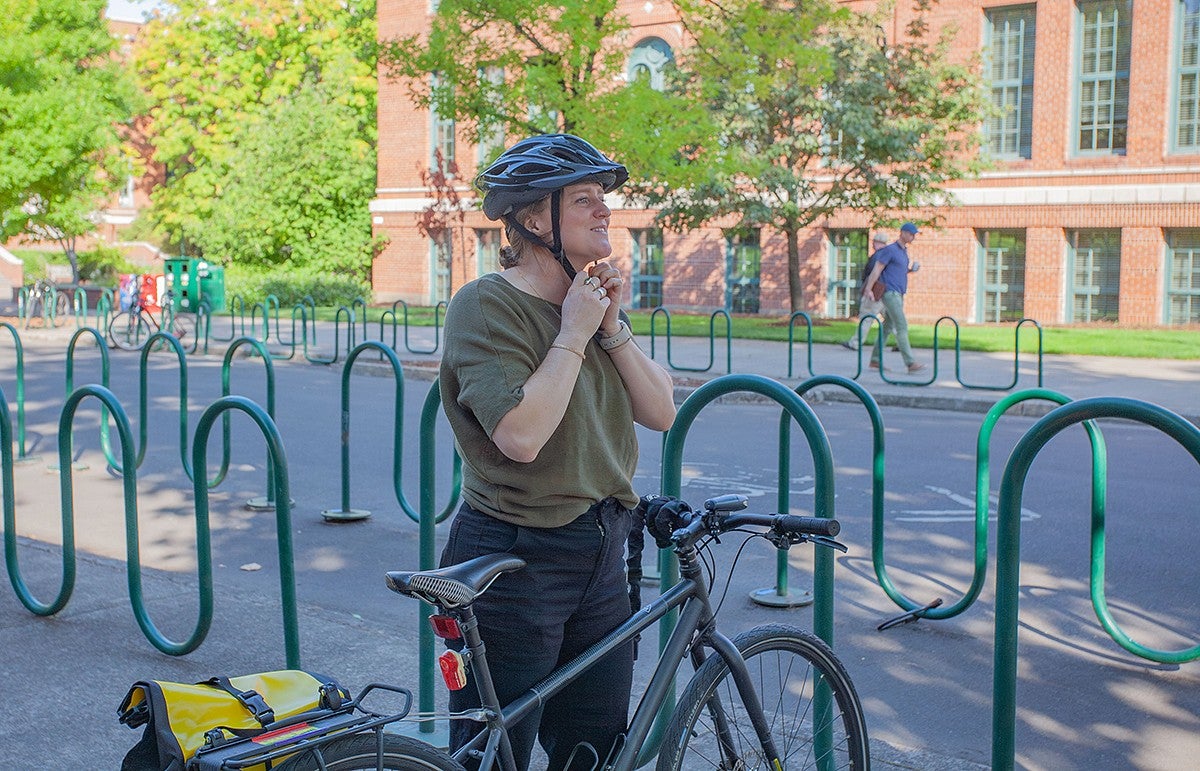
When history repeats itself
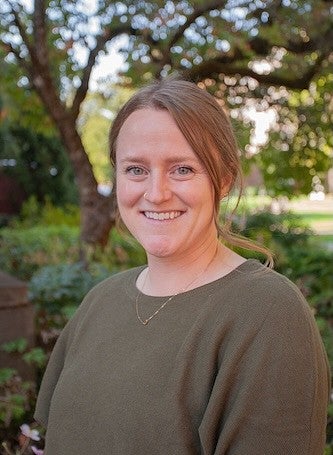
CHC classes: CHC 231H Reform, Repression, and Revolution;HC 301H The Local and the Global; and HC 434/431H History of Gender in Germany
Hometown: Vancouver, Wash.
Song on Repeat: Currently anything on Hurray for the Riff Raff’s album, “The Past Is Still Alive”
Guilty Pleasure: Buying new books even though I own an embarrassing number that I’ve not yet read.
What's in the fridge: Mama Lil's Pickled Hungarian Peppers in Oil. I put them on nearly everything.
Favorite Movie: I’m not a huge movie person, but definitely the 2005 adaptation of Pride and Prejudice.
Coffee or Tea: Mostly coffee, but I love tea, too!
Why I teach at the CHC: For the students, faculty, and staff who are so clearly bursting with curiosity about a host of issues, hardworking enough to learn the skills to seek answers to their questions, and generous enough to support each other in fun, collegial environment along the way.
If you take my class, you will: Learn to think not just about the what and when of the past, but more importantly, about the how and why. And then you’ll learn the magic of wielding these analytical tools upon our present moment as well.
I’m a stickler for: Sitting in the discomfort. Learning should be challenging, but the growth is in the struggle. But we don’t have to struggle alone!
Ask Larissa Stiglich why she’s excited about being a new assistant teaching professor at the Clark Honors College and her answers won’t surprise you.
Small class sizes. Check.
Affable students who are serious about their schoolwork. Check.
Opportunity to advise and counsel students as they launch on their academic journey. Check.
But if you press Stiglich a little, there’s more to the story.
“My drive definitely comes more from what I’m passionate about,” says Stiglich, who is “Lars” to her family and friends. “I grew up for sure with ‘eldest daughter syndrome.’ I was Type A and was never in trouble. I worked really hard and set out an academic journey for myself that involved striving for perfectionism.
“I see the pressure that young people put on themselves and I want to help dispel some of that myth about perfection.”
Stiglich taught for roughly five years at Young Harris College in northern Georgia as an assistant professor of history. She went to Willamette University in Salem, Ore., as an undergraduate, earning degrees in history and German.
She later traveled to the south to earn her master’s in history at the University of North Carolina-Chapel Hill, sticking around afterward to earn a PhD in modern European history. She was deeply interested in Germany and had traveled there after graduating from Willamette.
She is fluent in German and her focus has been on how ordinary Germans navigated the dramatic transformations of the 20th and 21st centuries. “I’ve gotten so much from my experience studying the language and the country,” she says. “Honestly, I can say in a lot of ways, Germany changed my life. It’s added so much richness to it.”
Originally from northern California, Stiglich’s parents worked as engineers at the then-Hewlett-Packard Company. The family relocated to the Vancouver, Wash., area. She remembers her mother making the choice to step back from work to take care of her and her brother.
Stiglich recalls learning how to be creative from her mom, taking up all matter of artistic projects. “My brother and I ended up not on the science side but on the humanities side,” she says. “My mother made sure we had our hands in everything.”
She played elite soccer through much of high school before turning to rowing on a crew team. She also participated in a German-American partnership program that allowed her to visit Germany as a teen and live with a family as a student. That’s when her language skills blossomed and she developed a love for the culture.
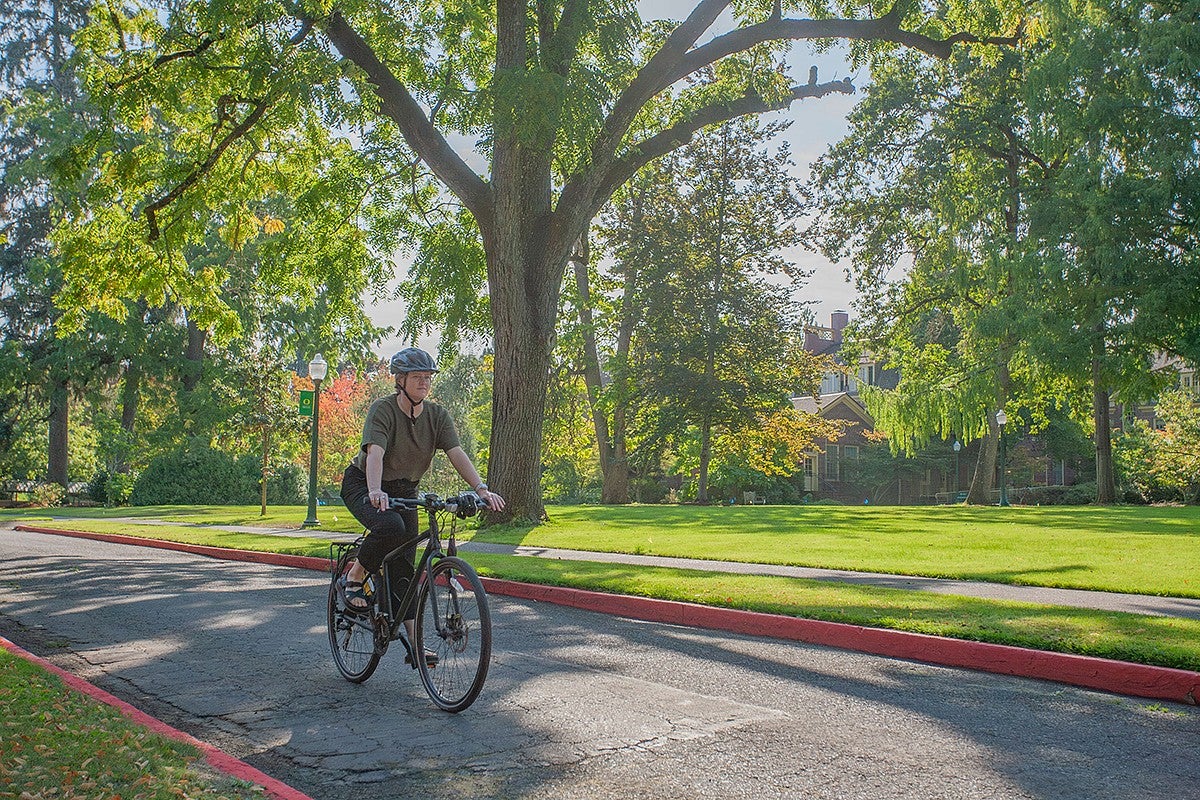
After the program ended, she finished high school and attended the University of Washington. It was a tough time, she recalls, because she says she was lost at the giant college. She transferred to Willamette and felt right at home.
“I was missing the smaller class sizes that I had in high school,” she says. “I didn’t have anything to anchor me and I was miserable.”
At Willamette, she was familiar with the rowing coach and she joined right away. As a sophomore, the team competed at nationals and Stiglich was later named captain on the team.
In her courses, she excelled in both history and the German language. She started thinking about a career in teaching, setting her sights on getting a master’s and her PhD.
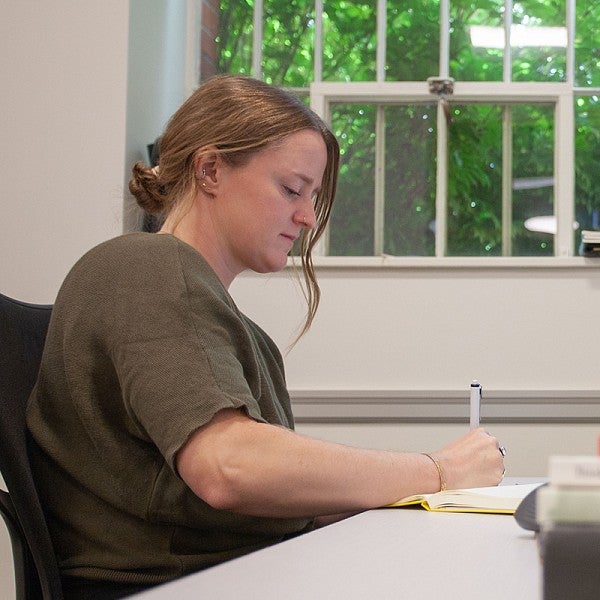
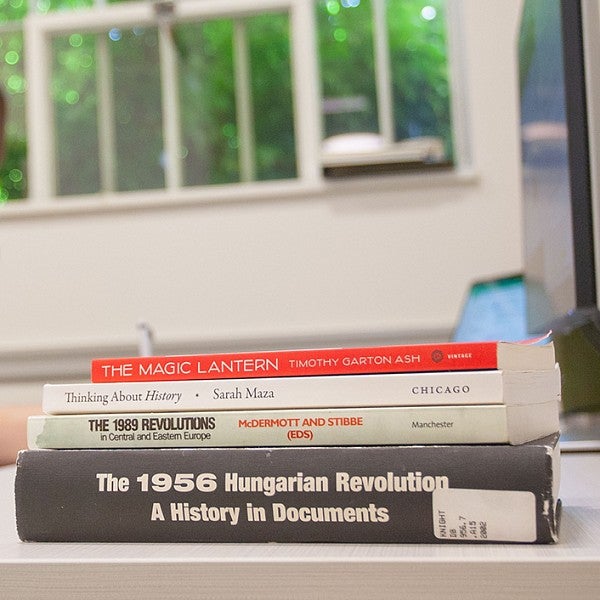
Bill Smaldone, Willamette’s E.J. Whipple professor of European history, was her undergraduate advisor. He recalls the student who juggled academics, rowing and mentoring others.
“She clearly stood out because she could truly multitask,” Smaldone recalls. “With Lars, she was never just doing what had to be done to get it done. She took learning so seriously. She was interested in the material and wanted to live and breathe it. Her attitude as a leader was great to see because she always had great energy.”
He considers her to be a “perfect example” of the kind of student that Willamette launches into the world.
“She graduated at the top of the heap,” Smaldone says. “And then she had to find her way through graduate school and her PhD program. At Young Harris, I am sure her Willamette experience boosted her understanding of the liberal arts experience. She was in a position to make a difference in the lives of her students.”
It wasn’t always easy. Stiglich loved working closely with students, but living in the South was hard to get used to at times. “It’s a very rural area with one stop light, a Dollar General Store and a restaurant or two,” she recalls.
She saw that the CHC had a few openings for teaching professors and she applied. “They wanted someone with interdisciplinary experience in the humanities,” she recalls. “I felt like the universe was screaming out to me to come back closer to home. Everything clicked into place.”
Her first class at the CHC is Reform, Repression, and Revolution, a seminar-style class that examines governmental systems across Europe and the former Soviet Union that collapsed and evolved at the end of the Cold War. And she’s looking forward to connecting with students and sparking their interest in history.
Stiglich also wants to find a way to develop a study abroad experience for CHC students that involves traveling to Germany in the summer.
“The CHC would’ve been great for me as an undergrad,” she says, wistfully. “But now that I’m here, I can set up an environment for my students where they know they have a professor who will listen to them and try to get to know them. I want them all to succeed.”
